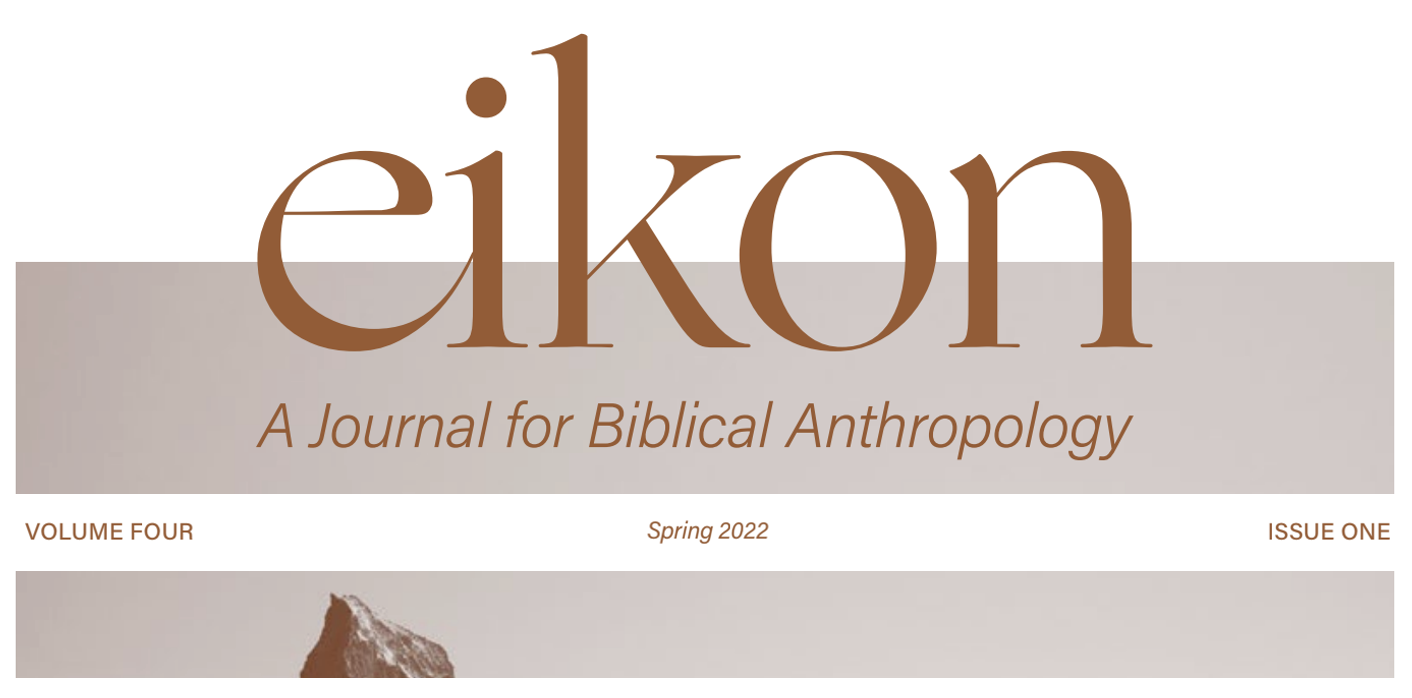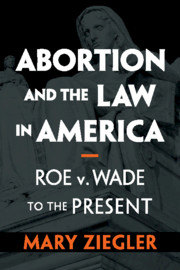Editors note: the following book review appears in the Spring 2022 issue of Eikon.

Mary Ziegler. Abortion and the Law in America: Roe v. Wade to the Present. Cambridge: Cambridge University Press, 2020.
 Laws are never neutral. Even the most mundane, benign regulations communicate values prized by a particular society. Speed-limit laws prioritize public safety on roadways over an individual’s desire to more swiftly arrive at his or her destination. Tax-based incentives for charitable giving denotes a society attempting to inculcate a generous citizenry. Every law arises out of a desire to encourage and/or discourage a certain behavior, signaling the kind of worldview that is operative within a community.
Laws are never neutral. Even the most mundane, benign regulations communicate values prized by a particular society. Speed-limit laws prioritize public safety on roadways over an individual’s desire to more swiftly arrive at his or her destination. Tax-based incentives for charitable giving denotes a society attempting to inculcate a generous citizenry. Every law arises out of a desire to encourage and/or discourage a certain behavior, signaling the kind of worldview that is operative within a community.
Perhaps no topic in the present American context proves this point more than the issue of abortion. Indeed, consider the state of the debate: is abortion connected to a fundamental right of a woman to control her own healthcare or does it constitute the murder of an innocent baby? No gray room exists on this issue and the stark divergences between these two points redounds in our public square. At the time this review was written, Oklahoma effectively banned all abortions while Colorado removed all restrictions to an abortion, even up to the point of birth.
Again, laws are never neutral, and the reason states are passing radically distinct laws regarding abortion stems from equally distinct worldviews undergirding those statutes.
Mary Ziegler’s Abortion and the Law in America: Roe v. Wade to the Present, explains the fault lines over the abortion debate, providing an astute, well-researched, and carefully presented history of the unfolding legal drama that emerged after the landmark case in 1973 legalizing abortion in all fifty states.
Christians interested in the complexities of the abortion debate will welcome Ziegler’s book because of the necessary context her scholarship provides to the story of the abortion crisis in America. She helpfully explains that after the watershed Roe v. Wade decision, followed by Casey v. Planned Parenthood in 1992, the debate over abortion only intensified in ways that historically situates the present divisiveness and polarity in America.
Her thesis states that Roe caused both sides in the debate to reassess their respective arguments and clarify their respective views regarding abortion. Specifically, she aptly contends that language began to shift away from “rights” talk — a right to an abortion vs. the right of the unborn child — to more pervasive, common good issues. The debate encompassed not only the issues of competing rights but included a competition between the social benefits or maladies caused by abortion.
The augmented nature of the battlelines, as Ziegler contended, necessarily followed Roe as pro-life advocates looked for ways to limit access to abortions. This primarily came through laws designed to incrementally chip away at Roe. As states considered passing increased restrictions to abortions, both the pro-life and pro-choice lobbies developed political strategies and intellectual arguments around the harm or benefit of abortions to a society. As Ziegler wrote, “Activists on either side primarily discussed not what the Constitution allowed but whether legal abortion was socially, culturally, personally, and medically desirable or justified” (2). Thus, “rights” based arguments were now accompanied by a host of positions about what was suitable for the common good, which had the net effect of making the abortion debate that much more divisive. There were not only disagreements about what the Constitution guaranteed, but public declarations about the virtue or vice of abortions in general.
Ziegler’s chronicle elucidates the burgeoning hostility and division in the abortion debate by historically highlighting the competing worldviews behind proposed legislation across the country. She stated that “focusing on claims about the costs and benefits of abortion had not tempered the conflict. The abortion divide was deeper than ever. . . . The conflict about abortion goes far deeper than the idea of two irreconcilable rights that became prominent in constitutional litigation” (6).
The abortion debate, Ziegler demonstrates, connects to a broad canopy of other issues, including conversations about religious freedom. The Affordable Care Act’s contraception mandate, as one example, was integrally tethered to the discourse in America about abortion, only this time, for religious groups that did not want to provide contraceptive care that could end in abortions. Cases like Burwell v. Hobby Lobby Stores, Inc., therefore, served as lightening rods for both pro-life and pro-choice advocacy groups who added stances regarding religious liberty to their respective metrics for gauging whether a politician would be favorable or unfavorable to their cause.
The example of religious liberty was but one case that Ziegler covered in her book, revealing how the abortion issue expanded from a debate over constitutionality to the kind of America envisioned by pro-life and pro-choice parties. Thus, Ziegler rightly suggests that if the Supreme Court overturns Roe, it is doubtful that there will be a national cooling over the issue. If anything, the discourse will only become more heated. “We have only begun,” as Ziegler posited, “to understand what makes the abortion conflict so intractable” (210).
Why is it so? As Ziegler’s book reveals, laws are indeed never neutral. In the case of abortion, comprehensive worldview divides exist that are, in fact, irreconcilable. Laws that allow for abortion prize autonomy and individual choice while simultaneously stating that the thing in the mother’s womb is morally inconsequential. Conversely, outlawing abortion establishes that unborn life is life, and thereby worthy of protection and care.
No gray room exists between those two claims — and those claims speak to broader legal and moral issues about the kind of nation Americans want to create.
Even after fifty years of Roe, it seems that the debates about abortion will only intensify. Ziegler’s book helps explain why.
You, too, can help support the ministry of CBMW. We are a non-profit organization that is fully-funded by individual gifts and ministry partnerships. Your contribution will go directly toward the production of more gospel-centered, church-equipping resources.